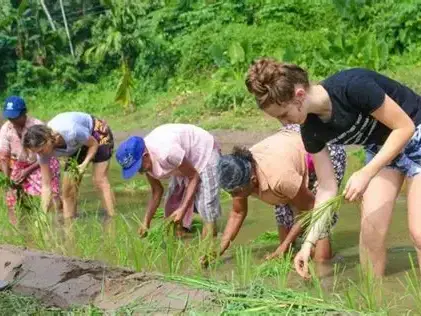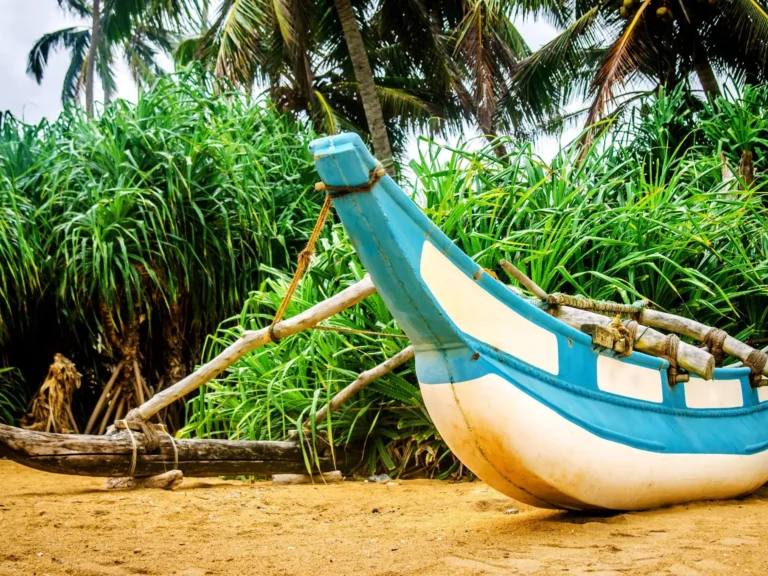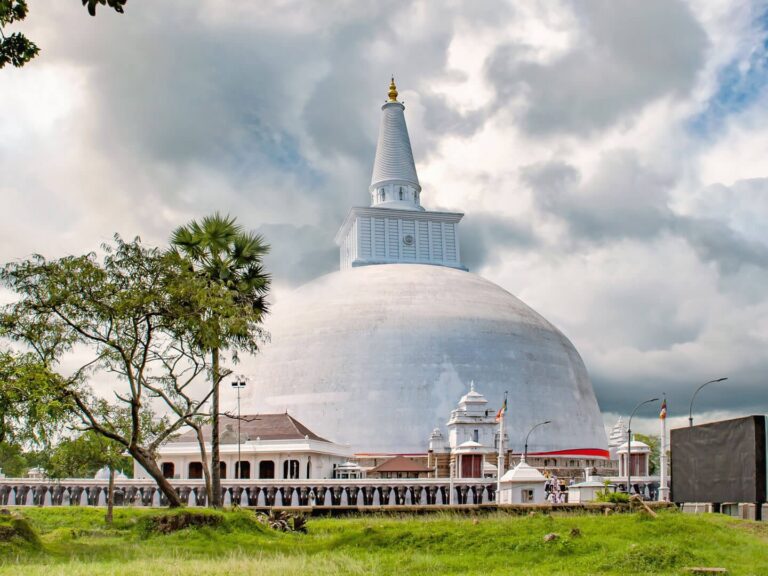From Farm to Blockchain: Culinary Cryptocurrencies and the Future of Sri Lanka’s Luxury Agri-Tourism

Introduction: Why Sri Lanka Must Reimagine Agri-Tourism
Tourism has long been one of Sri Lanka’s economic pillars. Before the pandemic, the industry contributed 12.6% of national GDP and employed nearly 1 in every 10 Sri Lankans. In 2018, arrivals peaked at 2.3 million visitors, generating USD 4.4 billion in foreign exchange. Yet by 2023, due to global shocks and domestic instability, visitor numbers had fallen to 1.48 million, with receipts at just USD 2.1 billion (Sri Lanka Tourism Development Authority, 2024).
The government now targets 5 million arrivals and USD 10 billion in annual revenue by 2030. But achieving this requires more than conventional “sun, sand, and surf.” Competing destinations like Maldives and Thailand already dominate beach tourism. To differentiate itself, Sri Lanka must lean into authenticity, provenance, and sustainable luxury—areas where it has unmatched cultural and agricultural assets.
This is where the concept of Culinary Cryptocurrencies emerges: using blockchain technology to tokenize farm-to-table provenance in luxury agri-tourism estates. Imagine sipping a cup of Ceylon tea at a boutique resort in Hatton, scanning a QR code, and instantly tracing the leaves back to the farmer, plucker, and estate that produced it. Or tasting cinnamon-infused seafood in Galle while viewing an authenticated blockchain record that shows the exact farmer cooperative, harvest date, and certification.
This model doesn’t just appeal to eco-conscious luxury travelers—it creates new income streams for rural farmers, builds trust in Sri Lanka’s global exports, and positions the island as the world’s first culinary blockchain destination.
Global Lessons: Seven Case Studies in Tokenized Dining and Provenance
1. IBM Food Trust (USA & Europe)
IBM Food Trust has been deployed by major retailers like Walmart, Carrefour, and Nestlé to track produce, meat, and dairy. For example, Walmart reduced the time to trace mangoes from farm to store shelf from 7 days to 2.2 seconds. Food safety risks dropped by 80%, while consumer confidence rose significantly.
Lesson for Sri Lanka: If blockchain can protect supermarket lettuce in the U.S., it can certainly safeguard tea, cinnamon, pepper, and organic vegetables for luxury dining and exports.
2. Provenance.org (UK)
A pioneering social enterprise, Provenance.org allows brands to tokenize claims like “organic,” “fair trade,” and “sustainably harvested.” Over 200 companies use its system, ranging from small coffee roasters to major seafood distributors. Consumers scan QR codes to verify ethical sourcing.
Lesson for Sri Lanka: Provenance proves that storytelling backed by blockchain adds value. For Sri Lanka, highlighting farmers’ stories can build emotional engagement.
3. VeChain & Shanghai Waigaoqiao (China)
In China, VeChain, a blockchain company, partnered with food importers to authenticate premium beef and wine. More than 1 million transactions were recorded by 2022. This reassured middle-class consumers wary of counterfeits.
Lesson for Sri Lanka: In markets like the Middle East and China, where fake Ceylon cinnamon and tea are common, blockchain-backed authentication could capture 15–20% higher export premiums.
4. Tea Traceability in Kenya
Kenya, Sri Lanka’s rival in tea, piloted blockchain traceability in 2021. Buyers in Europe could trace each consignment to its cooperative and farmer group. Export prices rose by 15%, and cooperatives reported increased demand from ethical buyers.
Lesson for Sri Lanka: Kenya is already innovating. If Sri Lanka lags, it risks losing its premium market positioning.
5. Coffee Blockchain in Rwanda
Rwanda’s partnership with Farmer Connect allowed European coffee buyers to trace beans back to individual farmers. This transparency improved trust and raised farmer incomes by 25%.
Lesson for Sri Lanka: A similar system could empower smallholder farmers in Uva or Matale, who often remain invisible in the luxury dining chain.
6. Cocoa Blockchain in Ghana
Facing allegations of child labor, Ghana piloted blockchain to prove ethical cocoa sourcing. Luxury chocolate brands adopted the system to maintain EU market access.
Lesson for Sri Lanka: Blockchain can help protect national reputation by certifying labor rights, sustainability, and fair wages.
7. Dubai’s AgriTech Blockchain Resorts (UAE)
Some Dubai desert resorts now grow hydroponic vegetables and tokenize their supply chains. Guests scan QR codes at dinner to see how their meal was cultivated—and even use resort tokens to fund local farms.
Lesson for Sri Lanka: Blockchain in hospitality is not futuristic—it’s already here. If desert resorts can do it, Sri Lanka’s lush estates can do it better.
Sri Lanka’s Untapped Agri-Tourism Wealth
- Ceylon Tea: Export value USD 1.3 billion in 2023; 5th largest export earner.
- Cinnamon: Over 90% of the world’s “true cinnamon” comes from Sri Lanka.
- Spices: Combined exports worth USD 384 million in 2022.
- Organic Produce: Growing certification in Uva, Nuwara Eliya, Monaragala.
- Tourism Synergy: Tea Trails, Jetwing Vil Uyana, Uga Escapes already practice farm-to-table dining, but without blockchain verification.
If tokenization is applied, Sri Lanka could increase agri-tourism receipts by USD 500 million by 2030, while creating 50,000 new jobs in rural blockchain supply chains.
Blueprint: How Culinary Cryptocurrencies Could Work
- Ingredient Tokenization Each product (tea leaf, spice, vegetable, meat) tagged with a unique blockchain entry. QR codes integrated into resort menus.
- Culinary Coins for Guests Resorts issue digital dining tokens that guests use for meals, spa treatments, or souvenirs. A % of each token directly funds the farmer who supplied the produce.
- Interactive Storytelling Dining tables feature digital menus showing videos of farms, farmer interviews, harvesting methods. Creates emotional bonding and transparency.
- Green Premium Pricing Studies show consumers pay 15–25% more for verified ethical dining (Harvard Business Review, 2022). This premium sustains rural farmers.
- Blockchain Branding Sri Lanka could market itself as: “The World’s First Culinary Blockchain Destination.” Campaigns targeting Dubai, Singapore, Europe, and North America.
Policy, Legal, and Ethical Safeguards
- Central Bank Regulation: Ensure compliance with Sri Lanka’s digital token guidelines.
- Farmer Equity: Blockchain must include profit-sharing models to avoid exploitation.
- ICTA Partnerships: National tech bodies should train smallholders in blockchain literacy.
- IP Protection: Sri Lanka’s cinnamon and tea brands must be safeguarded under Intellectual Property Act No. 52 of 1979.
- Privacy: Farmers’ personal data anonymized to meet global data ethics standards.
Socioeconomic Impact: Uplifting Communities
- Farmers: Blockchain reduces middlemen, ensuring direct earnings.
- Women in Agriculture: With 35% of Sri Lanka’s agricultural labor being female, tokenization can empower women as digital entrepreneurs.
- Youth Employment: Rural youth can take up jobs in blockchain coding, traceability auditing, and agri-tech management.
- Community Branding: Villages could become tokenized food heritage hubs, attracting culinary tourists.
Scenario Forecasting: Sri Lanka 2025–2040
Optimistic Scenario
- Sri Lanka pioneers blockchain dining in South Asia.
- By 2035, 1 million tourists annually engage in tokenized dining experiences.
- Agri-tourism revenue crosses USD 1 billion.
- Farmers’ income rises 30–40% above current levels.
Moderate Scenario
- Blockchain adopted by select luxury resorts (Tea Trails, Jetwing, Uga Escapes).
- Limited impact: USD 300–400 million new revenue by 2035.
Pessimistic Scenario
- Sri Lanka delays adoption while Kenya, Rwanda, and Dubai advance.
- Market share of premium tea and cinnamon declines by 15–20%.
- Tourism growth remains slow, missing the USD 10 billion target by 2030.
Conclusion: A Culinary Identity for the Future
Luxury tourism is shifting. It is no longer enough to offer infinity pools and five-star bedding. Travelers now seek stories, authenticity, and trust. Blockchain-powered farm-to-table dining offers Sri Lanka the chance to lead globally, while directly uplifting rural communities.
The concept of Culinary Cryptocurrencies is not just technological hype. It is a strategic blueprint for Sri Lanka to redefine itself as a premium, ethical, and futuristic tourism destination. If embraced now, Sri Lanka can secure its place not only as the Island of Tea and Spices, but also as the world’s first culinary blockchain hub.
📌 Disclaimer
This article has been authored and published in good faith by Dr. Dharshana Weerakoon, DBA (USA), based on publicly available data from cited national and international sources (e.g., Sri Lanka Tourism Development Authority, Central Bank of Sri Lanka, international tourism monitors, conservation bodies), decades of professional experience across multiple continents, and ongoing industry insight. It is intended solely for educational, journalistic, and public awareness purposes to stimulate discussion on sustainable tourism models. The author accepts no responsibility for any misinterpretation, adaptation, or misuse of the content. Views expressed are entirely personal and analytical, and do not constitute legal, financial, or investment advice. This article and the proposed model are designed to comply fully with Sri Lankan law, including the Intellectual Property Act No. 52 of 1979 (regarding artisan rights and design ownership), the ICCPR Act No. 56 of 2007 (ensuring non-discrimination and dignity), and relevant data privacy and ethical standards. ✍ Authored independently and organically through lived professional expertise—not AI-generated.
Further Reading: https://www.linkedin.com/pulse/from-farm-blockchain-culinary-cryptocurrencies-future-dr-dharshana-mssgc/
Additional Reading: https://gray-magpie-132137.hostingersite.com/rekindling-wellness-sri-lankas-hidden-hot-springs-for-arthritis-relief-retreats/






